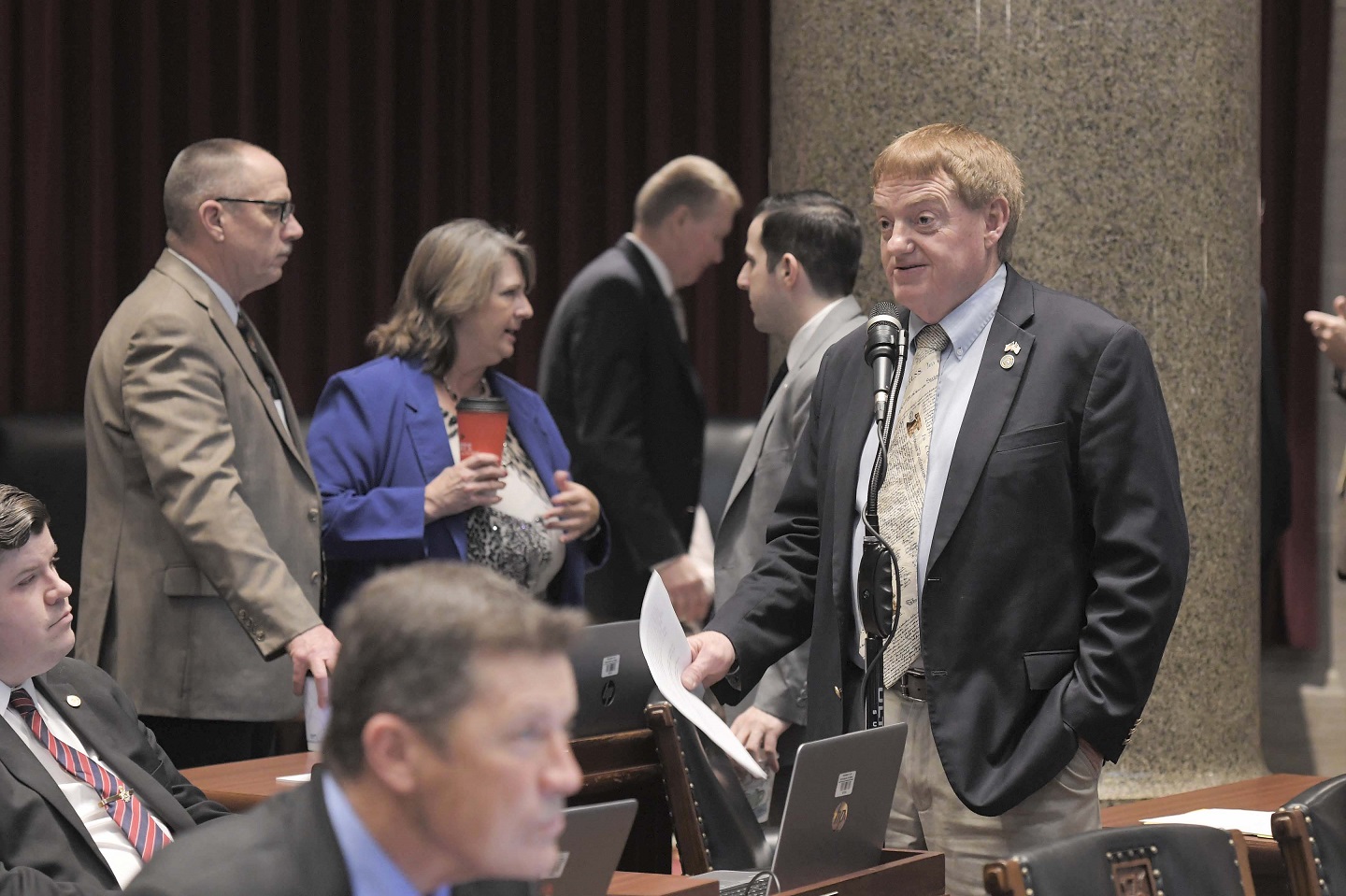Two House lawmakers say there are too many dead deer on the state’s roads and it’s hurting economic development and tourism. They say it’s time the legislature steps in and gets the Departments of Conservation and Transportation to do something about it.

Hazelwood Democrat Paula Brown and Mexico Republican Kent Haden have each filed identical legislation that would require the Department of Transportation to move dead deer from roadways and bury them at least three feet deep on Conservation land, and would have the Department of Conservation pay for that removal and burial.
Both representatives say this is an issue driven by constituent concerns. Brown shared with the Committee on Transportation Accountability some of the reports she’s gotten from people throughout the state: “There’s 22 deer on this stretch of road … I hit a buzzard because it was eating a deer … then one of my other representatives from my side of the aisle called and said, ‘Have you been hearing about dead deer?’ and I was like, ‘It’s time to do something.’”
Haden had a similar experience.
“We are open to solutions,” said Brown. “This is not to punish anyone but when constituents call you and tell you how disgusted they are, and they’re from all over the state, it’s time for us to do something.”
“ … the problem’s gotten worse, not better.”
The issue came before a House transportation committee four years ago when its then-chairman, former representative Tim Remole (R-Excello), said he counted 75 deer on Highway 63 in the roughly 30 mile distance between Moberly and Columbia. Remole filed legislation about the problem then, and Haden said the committee was told by the Departments of Conservation and Transportation that they would work something out and a legislative solution would not be needed.
Transportation Accountability Committee Chairman Don Mayhew (R-Crocker) said he was on the committee then, “I was a participant in that [hearing] and that was four years ago and I can tell you from my own personal experience the problem’s gotten worse, not better.”
“If the two groups would do what is right for the State of Missouri and not argue over, ‘It’s our money. You can’t tell us what to do,’ then this wouldn’t be an issue,” said Haden. “We have two commissions with adequate funding who … have not yet done what is correct for the betterment of the whole State of Missouri, for a relatively small amount of money.”
The Departments told lawmakers a combination of things has led to the large number of dead deer remaining along the state’s byways. One of those has been staffing.
Department of Transportation Legislative Liaison Jay Wunderlich said the Department is down about 300 maintenance workers. Also gone are hundreds of incarcerated individuals who, pre-COVID, helped remove carcasses and trash along highways.
“ … right now what we’ve been asked to do is just turn the deer around and to leave it on highway right-of-way … ”
Another factor has been chronic wasting disease (CWD), a fatal neurological disease in deer and other cervids. Department of Conservation Deputy Director of Resource Management Jason Sumners said the Department is concerned about the movement and disposal of deer carcasses in relation to controlling the spread of that disease.

Wunderlich said Transportation crews have been following Conservation Department guidance on what to do with a dead deer.
He said between Conservation directions and financial concerns, leaving the deer on the roads made more sense to his Department.
“To make it a priority to go out picking up dead deer our number one focus for the particular day, that’s just not good [use of] taxpayers’ dollars in our minds. We’ve got to take care of the roads so that people are driving safely,” said Wunderlich. “Do we have the choice of picking up dead deer for that particular area or do we have to go out and fill potholes, fix a bridge that has a hole in it, put up guardrail, what have you. We’re doing the best we can with what we’ve got but right now the best that we have is to just go out there to remove the deer as we see them, as it becomes a health or a safety factor.”
At least one Committee member, Lakeshire Democrat Michael Burton, sympathized with the Transportation Department’s argument.
“ … somebody’s going to have to say, ‘What’s good for the State of Missouri and who’s going to do it?’”
Haden and Brown insist, though, that the current situation needs to be addressed. They said in addition to being eyesores, sources of odor, and potential road hazards, the carcasses are threats to economic development and tourism.
“A million dollars could very well be made up with one business settling in our state who could be turned off by the fact of, ‘What is the deal here?’ if they come from a state who does pick up their deer better,” said Haden. “You also have all the tourists coming through. How many of them want to look at a decaying, rotten carcass, with odor? What is that damage to the State of Missouri? In my opinion it’s very damaging … as Representative Brown said, it is a constituent-driven issue.”
The Committee’s top Democrat, Michael Johnson, hails from Kansas City which in coming years will host the NFL Draft and the FIFA World Cup soccer tournament.
The committee took in the concerns of the two departments but most members commented that something different needs to start happening. Representative Rudy Veit (R-Wardsville) said he doesn’t think the legislature should be having to deal with this.
The legislation is House Bill 501 (Brown) and House Bill 404 (Haden). The committee has not voted on either bill.
Pronunciations:
Remole = REM-oh-lee
Wunderlich = WON-der-lick
Veit = veet
